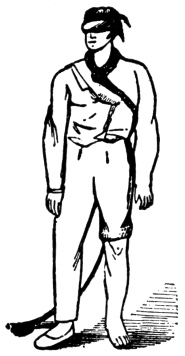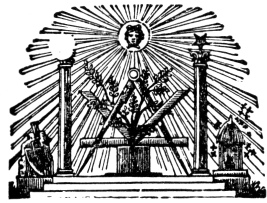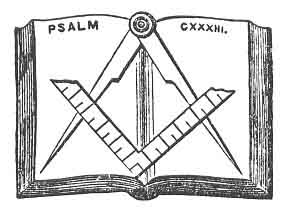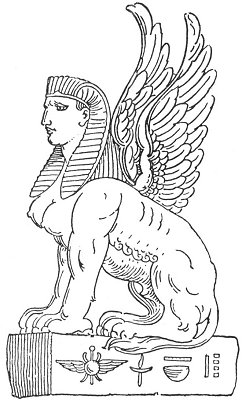If there are any candidates to be brought forward, that will be the first business to be attended to. I will therefore proceed with a description of the ceremonies used in the admission and initiation of a candidate into the first degree of Masonry.
A person wishing to become a Mason must get some one who is a Mason to present his petition to a lodge, when, if there are no serious objections, it will be entered on the minutes, and a committee of two or three appointed to enquire into his character, and report to the next regular communication. The following is a form of petition used by a candidate; but a worthy candidate will not be rejected for the want of formality in his petition:
To the Worshipful Master, Wardens and Brethren of Lodge No. —, of Free and Accepted Masons. The subscriber, residing in ——, of lawful age, and by occupation a ——, begs leave to state that, unbiased by friends, and uninfluenced by mercenary motives, he freely and voluntarily offers himself a candidate for the mysteries of Masonry, and that he is prompted to solicit this privilege by a favorable opinion conceived of the institution, a desire
p. 17
of knowledge, and a sincere wish of being serviceable to his fellow creatures. Should his petition be granted, he will cheerfully conform to all the ancient established usages and customs of the fraternity.
(Signed)
A. B. At the next regular communication, (if no very serious objection appears against the candidate) the ballot boxes wilt be passed; one black ball will reject a candidate. The boxes may be passed three times. The Deacons are the proper persons to pass them. One of the boxes has black and white beans or balls in it, the other empty, the one with the balls in it goes before, and furnishes each member with a black and white ball; the empty box follows and receives them. There are two holes in the top of this box with a small tube, (generally) in each, one of which is black and the other white, with a partition in the box. The members put both their balls into this box as their feelings dictate; when the balls are received, the box is presented to the Master, Senior and Junior Wardens, who pronounce clear or not clear, as the case may be. The ballot proving clear, the candidate (if present) is conducted into a small preparation room, adjoining the lodge when he is asked the following questions and gives the following answers. Senior Deacon to Candidate, “Do you sincerely declare, upon your honor before these gentlemen, that, unbiased by friends, uninfluenced by unworthy motives, you freely and voluntarily offer yourself a candidate for the mysteries of Masonry?”
Ans. “I do.”
Senior Deacon to candidate. “Do you sincerely declare, upon your honor before these gentlemen, that you are prompted to solicit the privileges of Masonry by a favorable opinion conceived of the institution, a desire of knowledge, and a sincere wish of being serviceable to your fellow creatures?”
Ans. “I do.”
Senior Deacon to candidate, “Do you sincerely declare upon your honor before these gentlemen, that you will cheerfully conform to all the ancient established usages and customs of the fraternity?”
Ans. “I do.”
After the above questions are proposed and answered and the result reported to the Master, he says, ‘Brethren
p. 18
at the request of Mr. A. B. he has been proposed and accepted in regular form. I therefore recommend him as a proper candidate for the mysteries of Masonry and worthy to partake of the privileges of the fraternity and in consequence of a declaration of his intentions, voluntarily made, I believe he will cheerfully conform to the rules of the order.”
 |
The candidate during the time is divested of all his apparel (shirt excepted) and furnished with a pair of drawers kept in the lodge for the use of candidates. The candidate is then blindfolded, his left foot bare, his right in a slipper, his left breast and arm naked, and a rope called a Cable-tow round his neck and left arm, [the rope is not put round the arm in all lodges] in which posture the candidate is conducted to the door where he is caused to give, or the conductor gives three distinct knocks, which are answered by three from within; the conductor gives one more, which is also answered by one from within. The door is then partly opened and the Senior Deacon generally asks, “Who comes there? Who comes there? Who comes there?”

Moe is the founder of GnosticWarrior.com. He is a father, husband, author, martial arts black belt, and an expert in Gnosticism, the occult, and esotericism.






